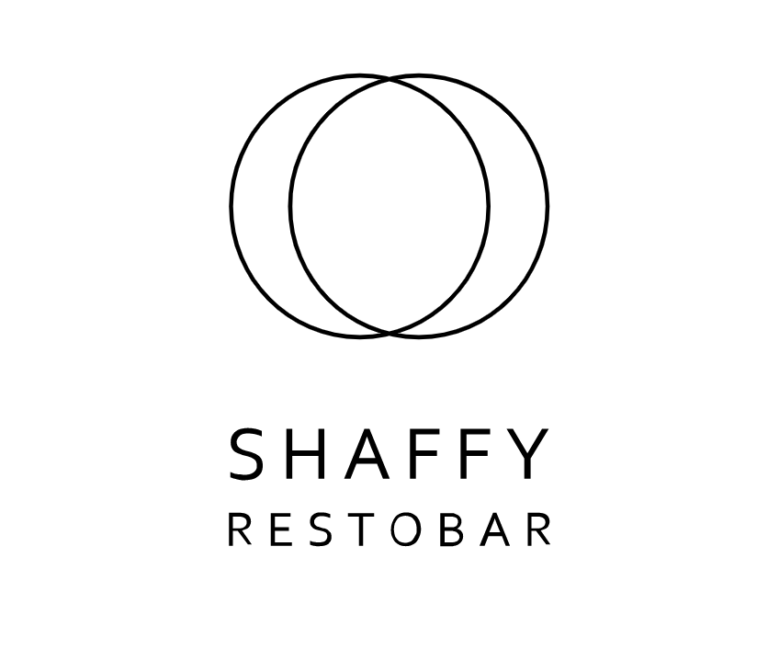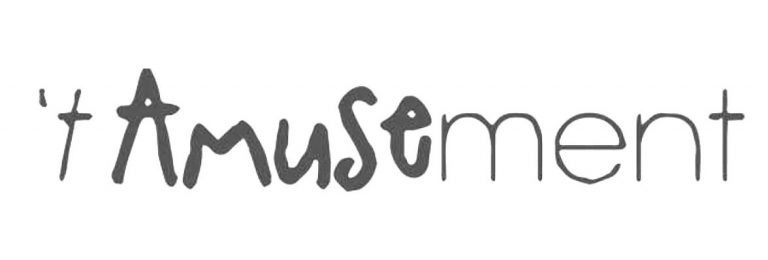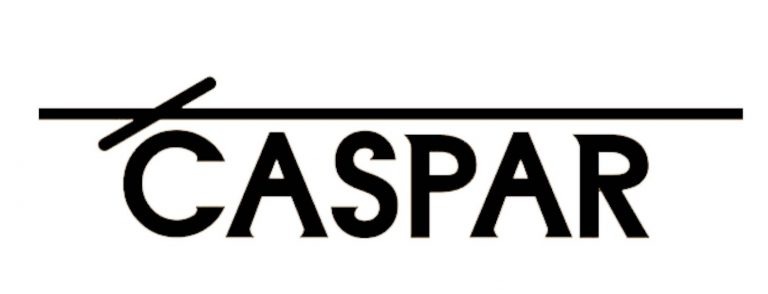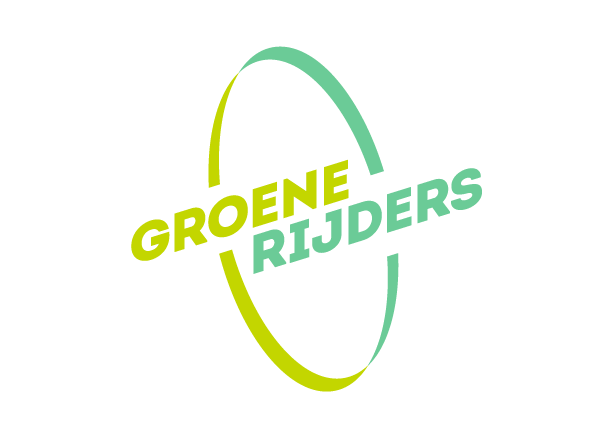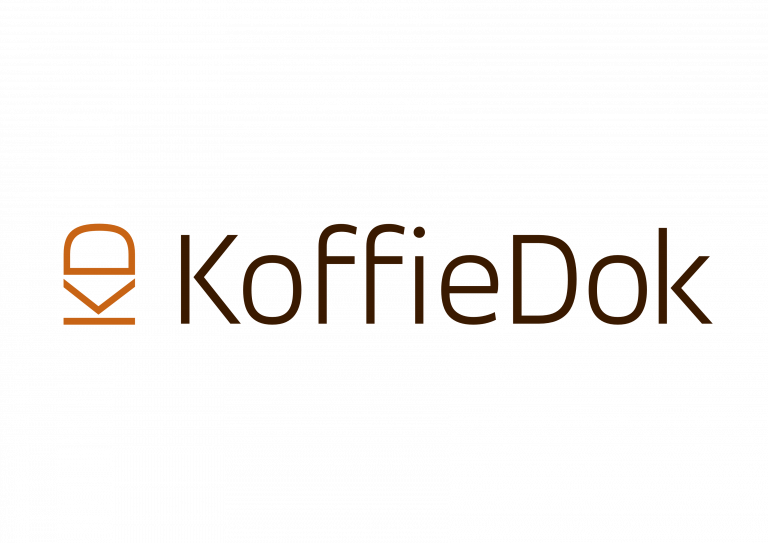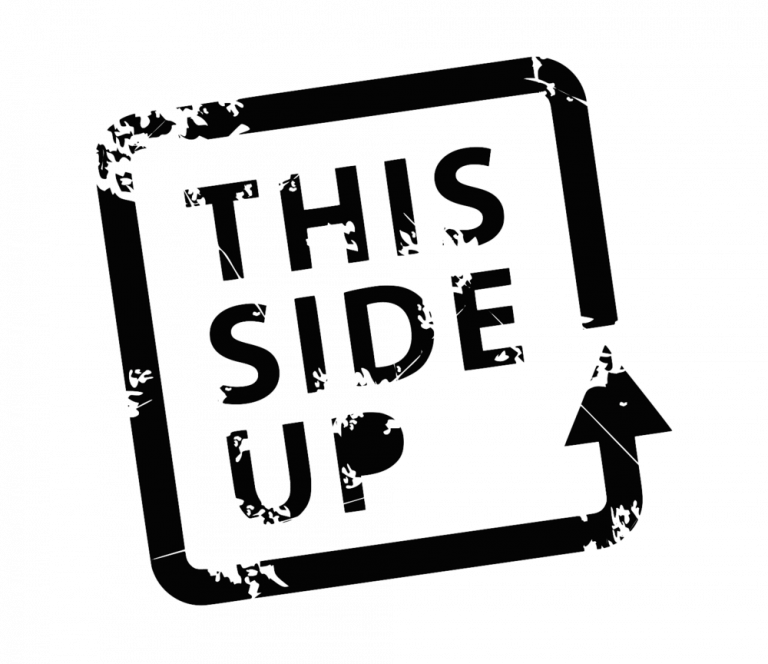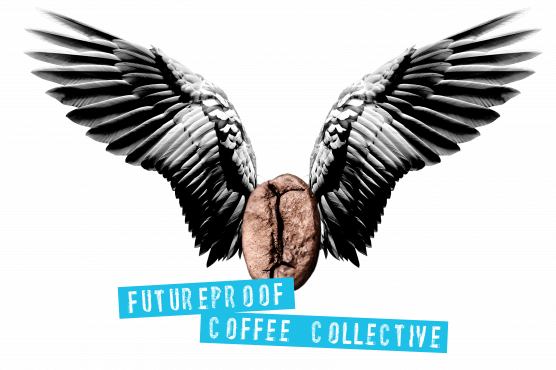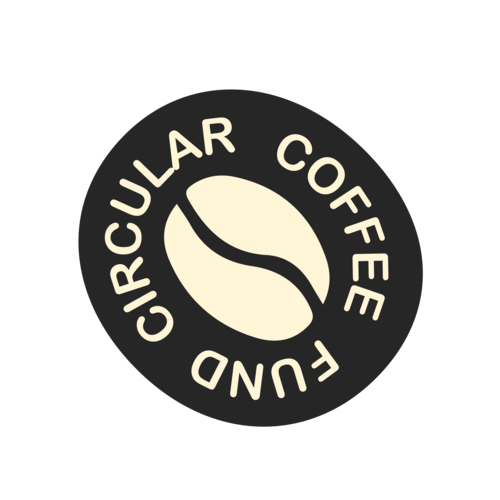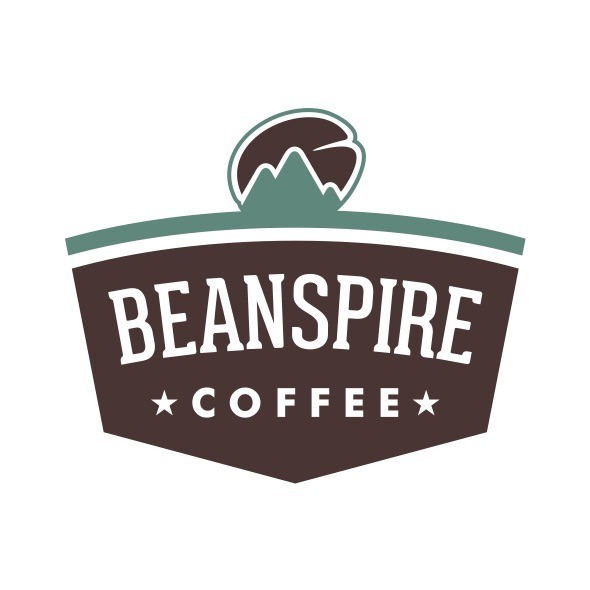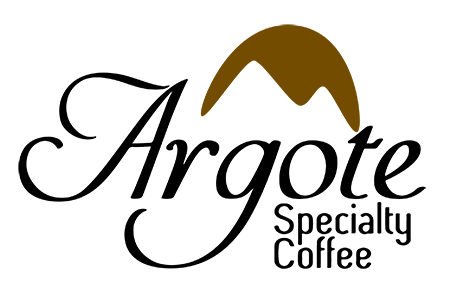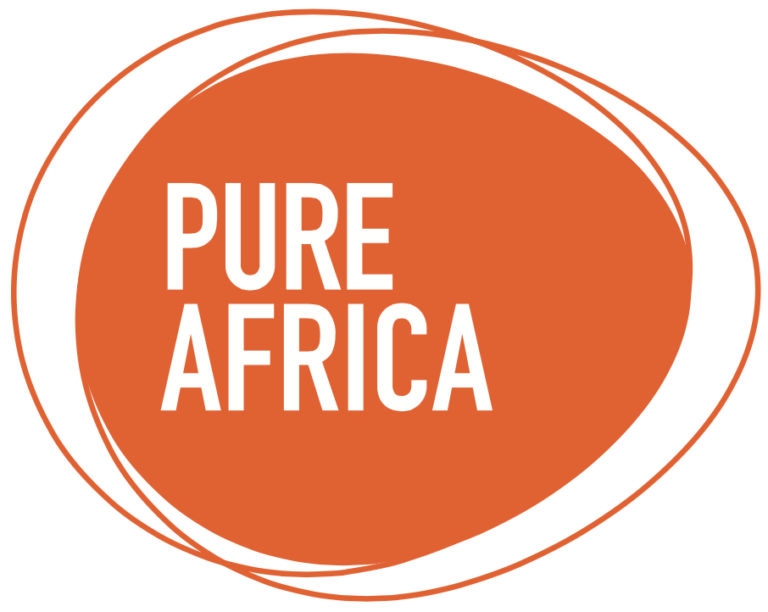In this episode I’m talking to Maarten van Keulen; Founder of Circular Coffee Collective, Circular Coffee Fund and Co-founder of This Side up Coffees.
Maarten is an expert in circular approaches of the coffee trade and is dedicated to find and facilitate futureproof connections.
We are talking about his circular approaches, the current challenges in the coffee trade and his current pride projects.
I travelled with Maarten to Colombia in 2018. Besides being an expert in his field he’s a great person and a lot of fun to hang around with.
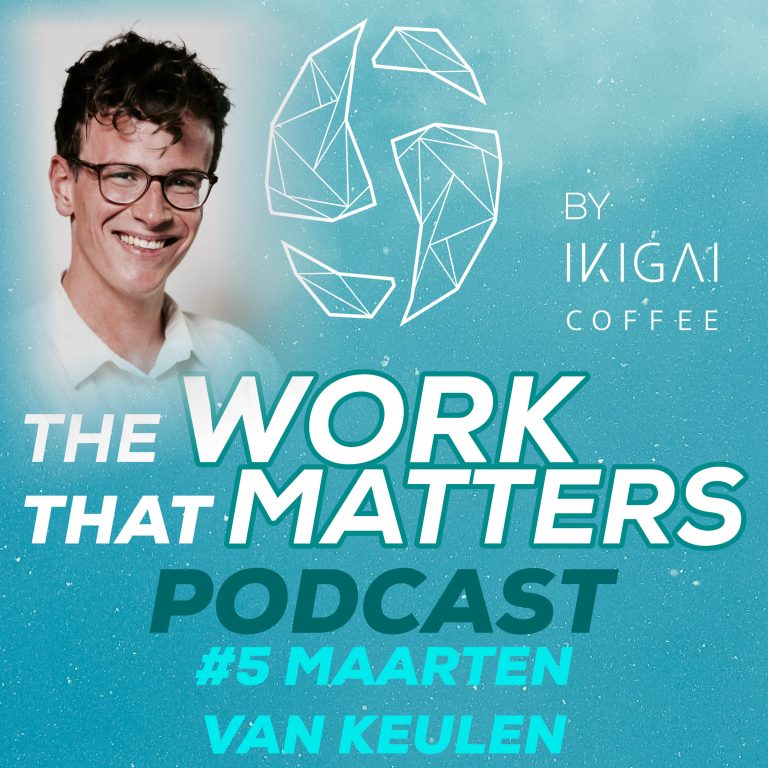
Find out more about Maarten van Keulen in this episode:
Ikigai PODCAST #5 Maarten van Keulen.mp3
[00:00:00] Welcome to the Work That Matters, podcast by Ichigo Coffee. My name is. I’m your host talking to the people behind the work that matters. If you want to find out more about this episode or any other episodes, please visit www.ikigai.coffee and I hope to see you there.
[00:00:20] Welcome to another episode of the Work That Matters podcast by Ikigai Coffee. My name is Jeroen Brugman. I’m your host and I’m talking to the people behind the work that matters. And on this episode I’m talking to Maarten van Keulen or Maarten Van Keulen is my Dutch friends and Maarten is has a Bachelor in Development Studies, major in human geography, a master of science in business and innovation of the study at the University of Utrecht. He’s currently the head of operations at this side up coffee imports, my favorite coffee importer and the founder of the Circular Coffee Collective. And we’re going to take a deep dive into into his mind, into his projects, into his his view on what the circularity actually is. So welcome to this show Maarten.
[00:01:14] Thank you very much. And that’s quite an introduction.
[00:01:18] So, Maarten, how are you doing? I’m doing very well. Life is busy. Corona Times have been interesting for for a lot of people in our industry, I guess.
[00:01:29] And I think for us, it’s been very interesting in a lot of positive ways.
[00:01:36] So it’s exciting in in what way is it interesting for you right now?
[00:01:41] Well, I think, like, I have a little theory of like we see that the sales are improving and that it’s actually we’re doing better than before Caronna Times.
[00:01:51] And I’ve been thinking like, why is this happening? And one of my theories is that people have had a lot of time to think about, like, what is what am I actually buying and are my choices sustainable? And when you dive a little bit into it, you actually find out that if you basically pay almost the same, you can have something that is actually good for the planet and its people. And we see like this shift happening. And that’s been very positive for us and also very positive for the coffee farmers we work with. And all the projects were running. So it’s been very exciting.
[00:02:25] It is nice because the thing you just explained, it’s interesting, of course, for for you, but also the project you are running, you’re the head of operations at this site up. That’s kind of how we met in the beginning. So can you explain what what this site up actually does?
[00:02:45] Well, like, officially we’re a coffee importer, but it’s a little bit too short to say basically what we tried to do and what we are doing is we are connecting coffee farmers directly to the end client. And often those are coffee roasters. But more and more, these are all sort of like the end clients like recently, like the Dutch government is also known and client. And what we do is then we connect these people directly to the farmers and they start to talk and they know everything about the price break down, what we pay, what we earn, who’s involved in the value chain because of days, because we know the farmer and we pay what we would say. We pay a normal price because we talk to the farmers as equal entrepreneurs and just discuss with them like, hey, what is the worth of your coffee? What what do you like to have for a cup of coffee or a pound of coffee? And when you have this direct connection and this friendship and this equal partnership, you can talk about a lot of different things like quality improvement, but also like reforestation or other kinds of amazing projects. So, yes, we are a coffee importer. The more we are like a social enterprise that really tries to make a blueprint of how coffee industry can also look instead of like a cold auction. And you don’t know who’s involved for prices in deforestation.
[00:04:13] And you name it kind of like the traditional way of trading. But, you know, although this side up is doing it in a new way, reticle, transparent way in which there is no brick walls and everything is open.
[00:04:29] Exactly. And I think, like, if you show everything what you have and you’re proud of the way you’re doing business, you might as well show everything and give other people the tools to check you. And when you do that, you don’t need like a third party certification. You don’t need other people. You really, like, give the tools to everyone to check everyone.
[00:04:49] We collaborated the last year at this set up and as I mentioned before, this is where we first met, I believe it actually was in Utrecht. Where we first met is I am so I am so captured by the by the philosophy it makes, it makes sense. It’s it feels natural. It’s it’s a way of trading that more people, more companies should implement. And to be honest, I think with the whole fast moving innovations and technology is where the future lies. Everything is eventually going to be completely transparent.
[00:05:26] And it’s about humanizing coffee trade. Again, it’s like not new numbers in Excel and not like auction prices going up and down. It’s about like trading with human beings and talking to them and making business together and making sure that everyone earns a fair bit in the chain and that nobody really takes control of the other person. But it’s like I think after so many years, we’ve really got accustomed to like, this dehumanization way of trading. And if you just bring a little bit the soul and the love and the connection back, like really a lot can happen.
[00:06:06] Yeah, people are more the chain has become longer and longer and has been indulged with more and more anonymity. And I think people are not really conscious anymore about what they’re drinking, about what the product coffee encompasses, where it comes from, who is producing it, and people are getting connected perhaps too much to just the product instead of the the story behind it.
[00:06:35] Exactly. And people get really, like connected to a brand and an image and a taste and like we really try to engage them, like ask these questions. It’s like, where does it come from? Who produced it? What are the flavor profiles? Why does it taste different? What have they done to it? And how can we improve it? And how do they treat their people and how do they treat their planet?
[00:06:57] You know, you could talk more about adding value instead of thinking they can way value. Absolutely. Yeah. It’s interesting. I’m kind of promoting this site up as well, because it’s just that the way I know you guys, you guys are friends. I like the business model. I like the coffees. I like the transparency. So I’m I’m a big fan. But the so you but Derbez of you’re talking about adding value. What is the recent project, most recent project where you have where you see the most of value being added.
[00:07:44] I think the project we’re most proud of at this moment is that since the 1st of September, we’re now supplying the Ministry of Infrastructure in the Netherlands. It’s nice. It has eight thousand people working for them, all government officials up until very, very recent. This was like the domain of the big coffee companies that really, like, we’re pushing on price and like the cheaper, the better. And it’s like basically it was considered as a cost and it just needed to be brown water. Now, as a result of a lot of basically lobbying and talking and explaining how the coffee world really looks and that like a blend of coffee is not like a secret recipe, but it’s something that you can trace down and you can really talk to the farmers. We’ve shown like this first government agency, like what is possible. And they have applied this in their public tender and we’re extremely proud of what we wanted. And we’re working now with three corporations or cooperatives in Indonesia, Ethiopia and Rwanda. Nice, because this is a government contracted last for eight years. So it gives like stability to this entire value chain. And like for for example, for the Rwandan cooperative, it’s a doubling of what we used to buy. So it’s like double the amount that we pay more for. So it’s doubled the amount of farmers that live a better life. So this these impacts, especially with the stability of eight years, is like an amazing victory that we’re extremely proud of. And also like that, we can show the world like it can look differently. Even the government agency that’s always looking at costs can do this.
[00:09:33] Yeah, the government actually carries a great responsibility in in their purchase strategy or purchase behavior in terms of where products come from. And if they buy products that that are affected by, let’s call it by the name modern slavery, then that is not a very responsible thing to do know.
[00:09:57] And they always have like. They always stimulate businesses to do better. Then they also have to keep their own house clean, so they have to lead by example. And I’m very happy and also proud that they’re doing so in terms of connecting.
[00:10:15] So you connected to the Dutch government, a part of the Dutch government. How did you say it was in English? The Ministry of Infrastructure, the Ministry of Infrastructure. So you are connecting them directly to three cooperatives. And how easy is that and how scalable is that?
[00:10:35] I think it’s surprisingly easy. And I think like this. Like what? The classic coffee companies always pretend that is very difficult. And I can also imagine, like for them, it’s very difficult because the buy off the auction and they always buy flat bottom prices. And it’s like I can imagine that when, like, their purchases go to the plantations, that they’re not being received with open arms. But like with our model working on friendship and equal intrapreneurship, it’s it’s very easy to just say, look, these are the people, this is their phone number, this is their bookkeeping. And if you don’t believe me, call them. You know, they know who I am. They know what we pay. And for this contract, we asked them, like, this is going to be the quantities. Can you produce this? And they said, yes. And there was the we’re extremely happy with this. And funnily enough, it’s also and I’m also very happy with this, like the government had a minimum price and we were talking about with this cooperative from Rwanda. And we’re saying, look, this is like we want to have this type of coffee. This quality of coffee is like a lower, high specialty coffee, sort of like scales like one eighty one eighty two points. And they said, oh, we can sell it for this price. And it actually was too low for what the government said that the minimum price was. So we came back to them. I said, OK, we’re going to pay you more perfect. That reaction was very, very cool to see.
[00:12:09] Yeah, that is remarkable. You have a higher budget and you reward farmers even more.
[00:12:16] I don’t really think it’s like is rewarding is more like remunerating for the effort they put in. Yeah. It’s like I think like in the coffee industry, we’ve kind of forgotten how important the work of the farmer is. You know, it’s like without the farmer doing a proper job, what should we do? The rest of us, you know, exporters, importers, roasters, machine operators, salespeople, we have nothing to do with the farmer. Doesn’t do the job.
[00:12:47] Yeah, well, it’s like it’s very normal that you pay is literally the seed of where the coffee comes from.
[00:12:53] Yeah, it is. And it’s like they should have like a good price. And that’s that’s what we talk about. And it’s also like, of course like to get the economy and everyone that works differently than in the Netherlands or the United States. But it’s like when you really, like, negotiate equal entrepreneurs. And just as I mentioned in Rwanda, Rwanda, you say like, hey, this is what we need, what can you offer? And you really start to negotiate, not even a road work. Just talk about how this is possible and what a good price for everyone would be. Yeah. Then you end up with everyone being happy.
[00:13:32] Yeah. So you quantify everything. You look at the numbers and then you start looking at the value being added and yeah, it, it’s, it’s nice. So in Rwanda, I believe there’s also some other projects going on there. So you first of all, this set up has to the cost of production covered back as a standard, that is the living income that that you look at, which is kind of difficult and kind of blurry to to determine. And then there is the the additives on quality, on story, on other value points. And in Rwanda, there is also a valid point of regenerative agroforestry that a premium is being paid for to to improve the the biodiversity of the land. Can you tell me something about that?
[00:14:29] For sure. And that also is the same cooperative as the Dutch government gets from it. Yeah, it’s the local cooperative in Rwanda.
[00:14:41] And last year we started a demo plot, so a demonstration plot of eleven hectares of starting what’s called an agroforestry system. So it’s like so if you look at it from an agricultural perspective, your monoculture, what you just have like lime. With coffee and nothing else, it’s pretty like the soil is very degraded, the very poor, and then you start into cropping, which you see a lot of new Africa, like one row bananas and one row of coffee. Agroforestry takes a step further. So when you would fly over a agroforestry farm or plantation, you don’t really see it’s a farm. It looks like a forest. So what you do is you try to look at like which plants are valuable for each other. And like, for example, coffee grows better in the shade. So which shade trees do you add? And, for example, what kind of nutrition’s do to give back to the soil? And that’s nutrition might be beneficial for the coffee. So you help the system as a result. You get more birds back, for example, and these birds eat more insects. And that leads to that. You need less pesticides. So you’re basically mimicking a rainforest system, but then in a productive way. And now in Rwanda, we’ve done we’ve started with planting this for 11 hectares. And we do this together with a with Mvezo, which you talk to a man on the farm for one of the last.
[00:16:19] For anyone interested in mind from the stuff, check out the last episode.
[00:16:23] Exactly. And basically also to show farmers, like in a few years like what’s possible. And this actually works is also like with farmers in the Netherlands or Western Europe or wherever you are, it’s constantly you hear the answer like, oh, no, but this is how my father and my grandfather used to farm, so why would I change it? So a demonstration plot to show that it’s different and that it works has a very good purpose.
[00:16:52] And is it easily scalable, the demo plot?
[00:16:55] It is. It is. This demo plot is owned by the cooperative and a cooperative often works that everyone owns their own plot of land, let’s say two or five hectares in Rwanda. So you cannot really do much there because that’s that’s private land. What you can do is inspired and touched him and that’s what this demo is for. So basically what we try to do is that they get so inspired that they start copying and mimicking these kind of things. And with the premium, we pay extra. They can buy, for example, these small trees, which they can use for this system.
[00:17:33] Yeah, it’s kind of a it’s moving upward instead of downward. It’s like scraping stuff off the of the price and limiting the budget and which makes everybody involved cutting cutting edges of their product or of their services and adding more value to it. That creates actually a sustainable or let’s call it a future proof model. It’s true.
[00:18:00] And it’s often what gets forgotten. You know, like most of the coffee industry is like still like wrestling with paying a proper and like if you don’t pay enough, then the kids of the farmers can go to school and it’s like a major worry and like the kids can go to school. Why would you care about the rainforest? You know, let’s just chop it down and we at least have some wood for our for our stove, you know? So it really starts with, like, knowing your farmer, paying a decent as an equal intrapreneur. And then you can talk about all these amazing projects like agroforestry and.
[00:18:36] Exactly.
[00:18:36] Yeah, those are additives, but also essential because like at the moment we don’t do this and the soil really degrades. Then we cannot grow coffee and then they don’t have an income anymore because it’s like I had to maybe they can become another farmer. But if you really degrade your soil, then bad and nothing grows. So it’s it’s not it is an additive in the way of sequence. I mean, first, no, your farmer better and then the ecology. But if you don’t do it, then it can really fuck up the rest of the system as well from the start.
[00:19:10] Yeah. If, if you narrow it down or try to simplify it, start at the bottom to as you mentioned it to you have to get to know the farmer first, then be the cost of production, then start with the living income and then you can add those in that you cannot do it the other way around. That is that is like strangling the the coffee producers even more mean. Exactly.
[00:19:35] And it’s it’s also like the like it’s a very costly thing, you know, like to get certified and we use this set up. I’ve decided to use that money instead of for actually purchasing these trees and actually making this demo plot and showing what we do and making us accountable and also the farmers accountable so that you can. We see what is happening, and I think really, like certification has done a very good job, you know, like from from the 80s on, it was so it was such a blurry world that, like, certification is good, but it’s not a bad thing. Let’s be clear on that. Not at all. But I think, like, we have come a long way and now like like doesn’t really matter where I am as I’m in Indonesia or in Tanzania or wherever. Every farmer has these old Androids, Samsung Galaxy that we used to have in 2014. And it works amazingly still, you know, like like everyone is what’s so we can make pictures. It’s like like we can text the farmers or the corporative leadership or whatever directly and say like, hey, can you send me a picture of what’s going on at this demo? And we get them back and it’s really nice.
[00:20:55] So that is for wonder. There’s a lot of growing going on there. You also are involved in a specialty booster project.
[00:21:07] Yes. And like what in the world exactly? I guess that’s why I wrote this down. Actually, we spoke about this before and I know you. So I know the involvement of you in this project. Let’s not be too formal, but your specialty booster. What what what can you make? Specialty of robusta?
[00:21:29] Well, that’s a little bit like I think besides like a huge stigma, you know, like it is cheap because it is shit. But, you know, that’s not really how it works. You know, it is shit because it because it’s cheap. It’s not like we pay so bad to the farmer that they don’t bother. So this set up we’ve turned this one around a few years ago, and it’s really like we are now picking the fruits of that. Like, what if you just say to these farmers, like you have specialty Arabica and you know how to do this pick picture robust and treated exactly the same.
[00:22:07] And then we watched like what happens and what happens is like these these reboost tastes like tar and asphalt and cigarette rubber. You taste normally and a robust booster, which which really makes you almost vomit. Those disappear and those go away. And and what you are being left with is this like deep chocolates, nuts, and more like Dudi for some people also like some dried tobacco because like the smell of dried tobacco can be quite nice. And what we see with that is that there is a clear market for this, especially like like the conservative coffee drinkers, let’s call them like that, like in southern Europe and also in the Netherlands and Germany, Belgium, you name them.
[00:22:59] They are used to these classical coffee flavor and they are not waiting or they are not really wanting to taste like Jasmine and lemon. Hence, you know, or they want to have like what they call Sitrick Notes, please.
[00:23:14] Yeah, exactly.
[00:23:15] And this is what we have been developing in Indonesia for a few years now. And we have a specialty are coming in from India, from India. We’re working on it in Thailand.
[00:23:29] And it’s coffee, you know very well, you know, and like Coney Island than than we expected. Yeah, it’s I think it’s got a really nice future. I don’t know. The the we went to the producer crossover in Berlin. That lady from India. What was her name again. Yeah. She said it’s it’s the bread that I can’t recall exactly. But it was it’s a bright future for robusto. It is a boost that has such a recognizable flavor. I think 80 percent of the the consumer or 90 percent of the consumers recognize reboost more than Arabica because it’s it’s always been the cheapest, the shittiest product that the film blends with. The whole supermarket is involved with reboost, too, compared with Arabica. It’s not by definition that Arabica has a higher quality then reboost. It used to be like that a bit more. But now you can when you produce reboost at the higher level at the specialty coffee standard, it becomes like this whole new product. It opens up a lot more. It opens up possibilities. And it’s true to that.
[00:24:44] Arabica is way more complex in its flavor profiles and you can go all directions with it and a robust size, a bit more limited to that. But when it’s exactly what you say is like a lot of people grow up with reboost, that’s the flavor. They’re used to and it’s also like if you look at it market wise and taste wise and price wise, it’s all very interesting. But for us personally, like sustainability wise, is very interesting because the name already says it’s it’s a more robust plant. So true like in times of climate change and it’s already happening. And some producing countries where you really see the rain seasons changing the prognosis that it might not survive there. So we need to change and then changing for a high quality fine robusta is a very good idea. And that’s why we’re also starting with this now and not in 20 years when we really have to. Now is the time to start learning about it and start experimenting and what it is all about. And what is a natural, robust tasting compared to a Washita booster.
[00:25:58] Exactly. You know, the funny part is the way I personally use a specialty reboost. I would never use a booster in any one of my blends because I know it is not being produced on quality. It’s a filler. And so if if more than 20, 25 percent of your blend contains herbicides to lower production cost to to increase margins, to increase profits. But I’m noticing that using this specialty reboost from tobacco, cognac and then from Thailand in my blends the flow blend, it enables me to communicate to a broader audience. If I would continue on one of these coffees, Ethiopian coffees, just a Brazil might make a nice fit as well. But the robusto recognition of the traditional coffee drinker is huge and people love it directly. They recognize the quality. And from there it is interesting to take them on the on a journey through coffee. For me, the specialty reboost that works like a hook to hook people in and then take them, take them along.
[00:27:05] It does. And it’s it’s it’s a shame that, like, the specialty coffee scene has still such a stigma towards it. And like last year, we did it with a company and it’s really like that’s how we framed it. But there are some robust us and if you don’t tell it, you won’t notice it. It tastes very much like a classic or Arabica from South America. So it’s like maybe next time when we’re doing it, like when Corona allows it again to give the public something, we might just put a robust set in the middle and don’t tell anyone and let’s see who picks it up. You know, like that is how good robust I can be. And I think a lot of coffee roasters and coffee drinkers don’t notice.
[00:27:52] So I move to a different subject. The Circular Coffee Collective is, of course, you you do a lot for this for the last two years.
[00:28:02] It is two and a half years, something like this novel, which is sort of already five years. But like the real work hours are like the last two years and the two and a half years.
[00:28:11] And in the meantime, you also start at the Circular Coffee Collective.
[00:28:17] What is that? Please tell me, as the name already kind of says, that it’s a collective of companies and it’s really based on two things.
[00:28:28] One thing is like I really believe that the circular economy is the future is like we cannot keep throwing things away, you know, and just keep incinerating it and landfilling it.
[00:28:40] And like like I used used like a paper cup for for ten minutes and then throw it away and then think we’re doing a good job because we’re throwing it in the paper bin. You know, we still cut a tree and we still went to the factory. It’s still got transport to the coffee shop and then you use for ten minutes and then it needs to be incinerated or whatever happens to it, you know. So this kind of approach, I think we really need to be aware of. When you take a circular economy approach, you cannot only look at the last part here at the coffee consuming side. You cannot say like, hey, we’re doing something cool with our coffee. You know, we’re making espresso. Then we have this sludge left and let’s make a top out of that. That’s cool. But that doesn’t do shit. If you chop away the rainforest of that particular coffee, you know, you have to look at it that the entire value chain, that was one of the motivations and the other motivation is like if you’re going to embark like the entire coffee value chain on this journey of becoming more sustainable, you have to look at where they really consume.
[00:29:49] And basically that’s officers, you know, the most coffee is being consumed at offices. It’s a bit less now, of course, because Garena but basically like like these government contracts and all the. Kind of big like central business district.
[00:30:02] You know, people drink a lot of coffee. And if you then deliver coffee to come to a company or an institution like that, you need to deliver not only coffee, also need to do machines. You need to do the hot chocolate. You need to do the tea. You need to do the sugar. You need to do two cups. You need to do everything.
[00:30:19] And to me, it didn’t make sense at all to only deliver the finest, honest, best, most sustainable coffee and then have slavery chocolate next to it, you know, so that’s what originated this collective of most sustainable companies here in the Netherlands and Belgium to jointly take up this challenge and to basically join forces. And with that, we can really make a fist against the classical coffee companies that really are focused on price and don’t really care about their value chains, actually the same as you did for the Dutch government.
[00:30:59] It is. It is. We’ve got only that model. Exactly. It’s basically like like connecting the farmer to, in this case, the Dutch government, which which has like a lot of offices and like really trying to get more and more on board. And for this particular contract, like the coffee part was done amazingly, like sustainable, sustainable and like with a minimum price, et cetera, et cetera. And in the future, I’d really like to see this happening for the hot chocolate as well and for the tea as well.
[00:31:30] And for all the things, you know, like it’s everything that you can take in your account, in your portfolio to be it needs to be future proof. It needs to be sustainable.
[00:31:42] Yeah. On all accounts and the entire value chain, not only like for the show, but really doing it.
[00:31:48] Yeah, exactly. Yeah. You carry responsibility in that. And it’s not just a story that you want to sell. Exactly. It’s not marketing is you’re really doing it. It’s let’s face it, it’s not easy to be honest, that is marketing. You take a product, you make it better and you carry responsibility and every step of making it better and you take accountability for all the steps. And that actually is marketing.
[00:32:16] You can use it as marketing as long as you don’t do it the other way around. Yeah, exactly. Yeah. Like, like, like doing one small thing and then like screaming like how good you’re doing about this one particular thing. It’s not. And this is what I also tried to, to really like repeat always. It’s like I never claimed to be circler. And what we do is not simply because it’s a journey, it’s it’s incredibly difficult to manage to close all loops, you know, to don’t have any waste direction.
[00:32:48] Yeah, it is. And it’s like really say, look, this is where we’re going. And this also includes regenerative agriculture in Rwanda, for example, because you are closing loops there, because we are doing this system like D11 Hectors that we talked about.
[00:33:05] You need less pesticides and you get cleaner wastewater and, you know, like you get less a more complex system of smaller circular systems instead of two large circular systems. Because if you quantify eventually everything is a circle, but the neglected circles will bite you right in the. But very much and to me, some people ask like, are you done sending all the coffees back to Rwanda?
[00:33:36] And I think, like, no, that’s that’s maybe someday. But like, this is not really where we should be focused on it.
[00:33:44] Yeah, that would make a nice story that people probably would would buy.
[00:33:50] Yeah. It’s like, can you imagine how much like all these West that is, that is inefficient. Yeah. It costs a lot of CO2 as well as like really a really interesting, super interesting.
[00:34:02] You told me a little bit about this set up a little bit about your project, the Circular Coffee Collective, both of the projects. I believe you’re doing a great job and I think it’s important work that you do. Thank you very much. But where did it start? So you mentioned to Tanzania.
[00:34:22] I did mention Tanzania. So what about what happened in Tanzania? And it’s kind of strange. There’s more people that have been to Tanzania that from their started their journey into coffee or into their system is what is it?
[00:34:37] You’ve talked to Sara as well and one of your former podcasts on the road at the start of the dozen, Sebastian Samake, I think you know him from Beeny Coffee started something Zenia and also the founder of this sort of Leinert clerics.
[00:34:51] His journey started in Tanzania. So, yeah, it’s so let’s let’s go back a few years.
[00:34:58] So the bachelor that you mentioned, like in development studies, that I did it at the University of Oslo, Norway, and then I did my research on if Drake’s coffee trade is better than fair trade certified coffee trade from the perspective of a farmer, because often we find as the consumers, we have all kinds of opinions about it. But I when I went down there to ask the farmers, like, do you care? Like, what do you think about this? And that’s that’s also how I became involved with this set up. Quite a funny story, because back then I lived in Oslo and then I went to the local coffee traders there to one of their campaigns. And I said, like, hey, do you have coffee from Tanzania? And he was like, hey, you should talk to my Canadian colleagues. You might know someone. And then I talk to her. And then she said, I have this girl you should talk to. She’s from South Africa. She lives in Burundi. And she was like, oh, no, you should talk to this girl in New York. And she has like ties to the coffee community in Tanzania because she her mother, I believe this from there. And then she told me, like, hey, you should talk to Leinert clerics, who’s the founder of this set up because he actually imports his coffee. So that’s how I became, like, involved with this. So, like, I travel around the world, but, yeah, in Tanzania, it’s where it all started. And from there, it really started snowballing.
[00:36:26] Nice. But what is it what is the main reason you do the things you do?
[00:36:31] I think it’s really like to stimulate and motivate people to like buying sustainable coffee is not that difficult and there are few things you can really look for. And like recently, I gave an interview to wrote a good article about this in England, Switzerland. And it’s like it starts with like looking at the back side of the package. And like, if you look at a package and you have to look for the roasting date and I like that really says it’s a start is like coffee you can keep for forever, but it’s really like the roasting date. And then you have around, let’s say, a maximum of 12 weeks. And then afterwards, really the quality starts to do great. So you want to know when it’s roasted and then you can come from there. How long you can keep something is not really the best before date is not really important. And whilst you’re looking at that coffee package, you basically want to find as much detail about the farmers as you can. So if they say like, OK, this coffee comes from South America and is one hundred percent Arabica, that doesn’t mean shit. You know, it’s like the more detail about the cooperative or about the individual farmer, the better fully agree on that. What that means. And people don’t really realize what that means is that it’s the lowest of the lowest of the auction. What they bought, you don’t really know when they bought it either. This can be bought in like two thousand and three one the price or you don’t know. And that’s that’s where it gets really tricky. And especially in these times where everything is sustainable and where everyone claims that it’s the best and it’s Direk trade, it’s organic, it’s whatever is very easy to claim.
[00:38:15] So as a consumer, you should really trek. And the more tools, the producer or the coffee brand or whatever gives you, the better.
[00:38:27] So, Marta, what is next? What is your next project now?
[00:38:33] It’s really like some people ask me is like, OK, so when are you done with all your projects? And I most of the time I answer, like by the time I die, I hope I’ve come quite a long way. And that’s what we should strive for. It’s like there is this utopia that we’re working towards to end. Some of these things are very easily achievable, you know, like regenerative agriculture. We know how to do this. So let’s let’s start doing this.
[00:38:58] So that’s a good end. Let’s start doing this. I hope you enjoyed this episode with Marta from my van came in from this side up and the coffee circular coffee collective. If you want to find out more about this episode or any other episodes, please visit EKI guys dot com and hopefully see you there. Take care and stay healthy.



